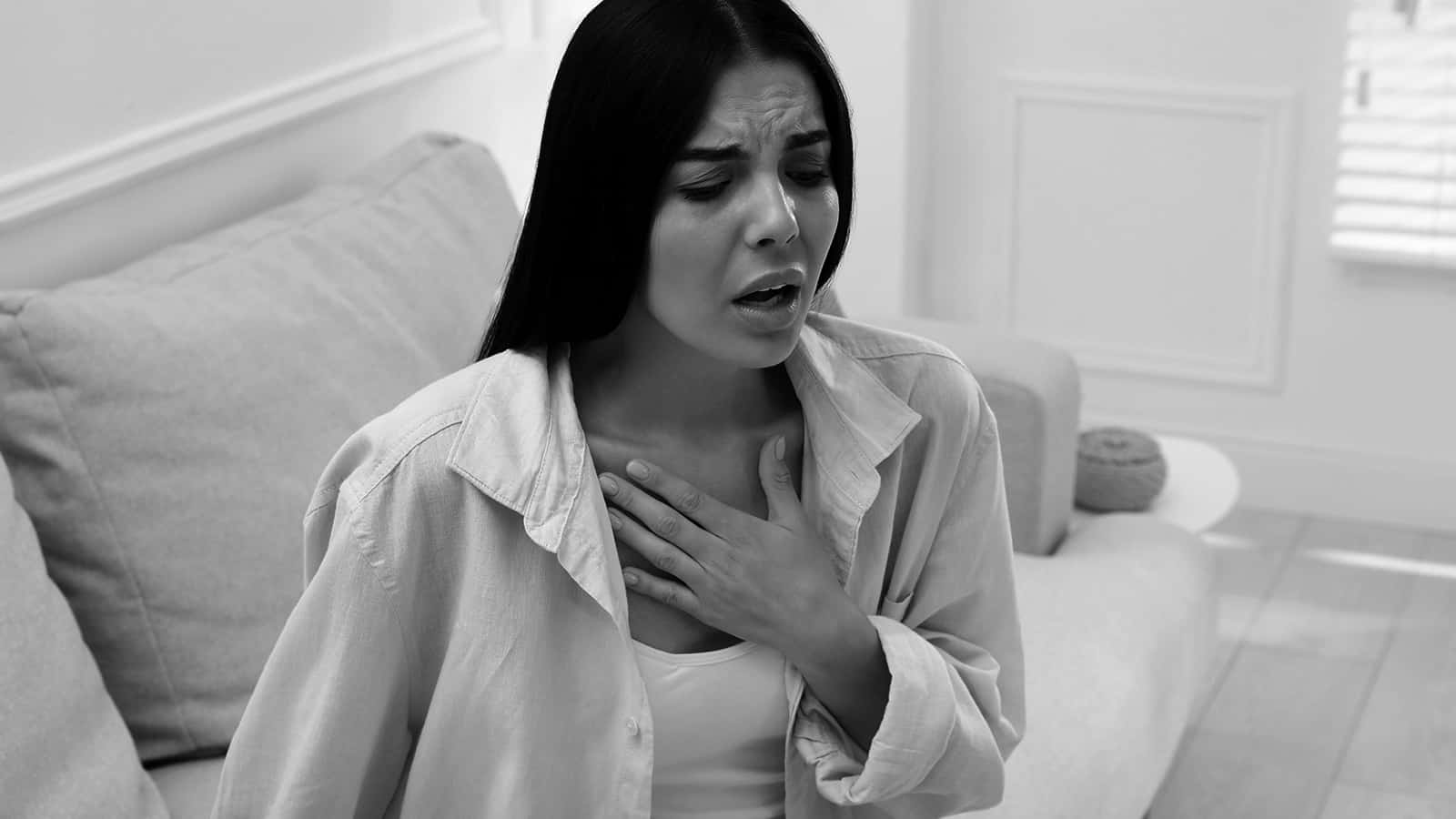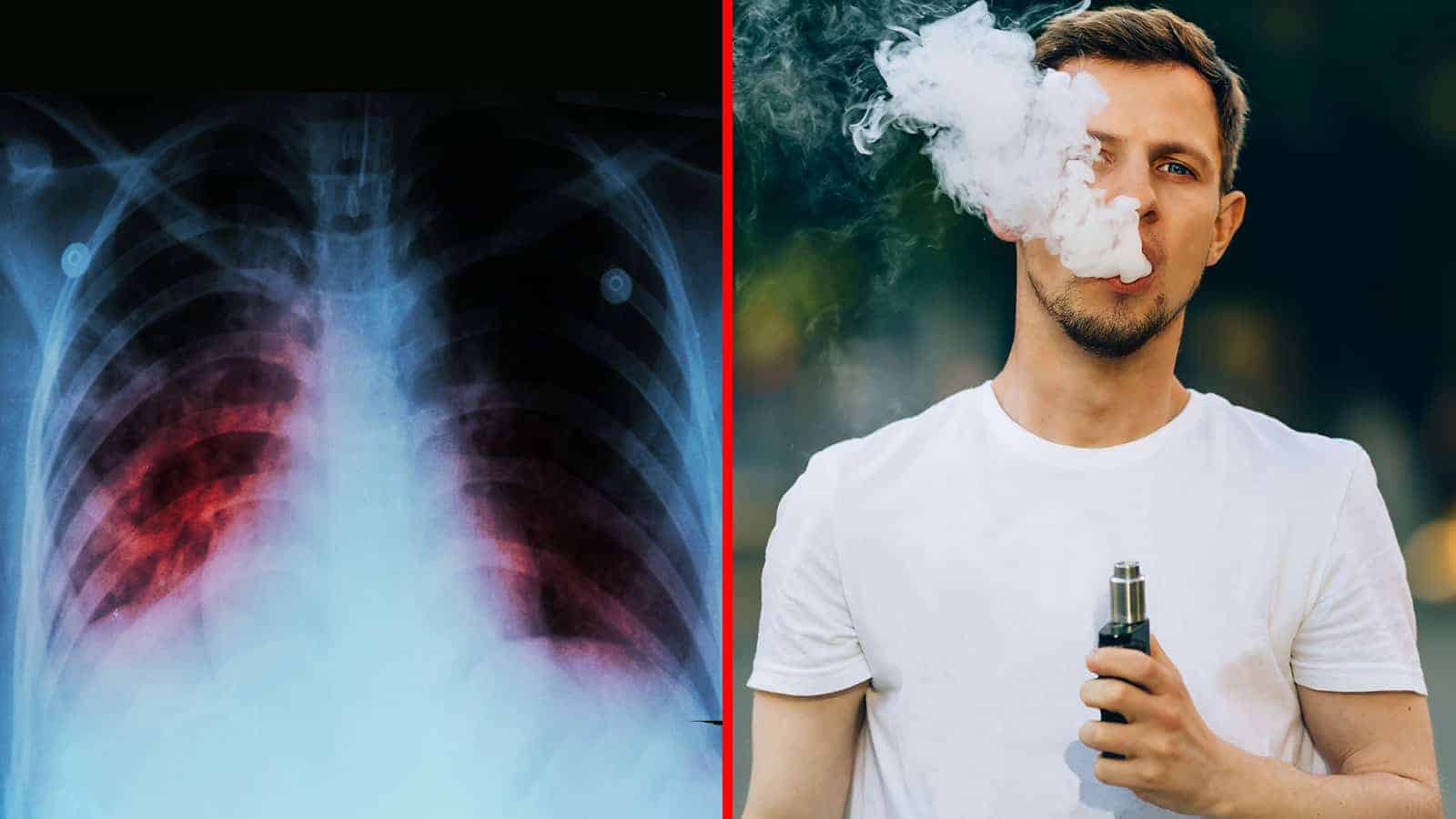You’re no stranger to this odd whistling sound if you have breathing issues. It may appear suddenly or be a chronic problem. Wheezing is your respiratory system telling you that it needs attention.
What is Wheezing?
An article published by Clinics in Chest Medicine defines wheezing as a whistling or high-pitched, coarse sound when you breathe. It happens when your airway is inflamed or obstructed. As you inhale and exhale, the air vibrates on the swollen lining resulting in a raspy whistling sound, per the article.
Usually, you will hear noisy breathing either when you inhale or exhale. The root of the problem may be discovered by which breathing phase you hear the annoying noise. If your breath is crackly with inhalation and exhalation, it could mean a serious issue requiring medical attention.
When you gasp, you may often do it as you exhale. The reason is that your airway muscles are tightening to force the carbon dioxide from your lungs. The high-pitched whistle may be more noticeable and indicate a mild airway obstruction from infection, allergies, or a foreign object.
Other conditions may be present when your breathing is noisy as you inhale. These are the breathing sounds that are usually present if you have asthma. It usually originates deep in the lungs when the asthmatic airways are constructed and mucus-filled.
This obstruction and inflammation will produce the tell-tale whistle sound as air is forced into the lungs.
 When Can Wheezing Point to Something Worse?
When Can Wheezing Point to Something Worse?
Anyone can have spells of raspy breathing. If you have allergies or sinus problems, your throat may be a bit tight in the morning, affecting your breathing sounds. Another common cause is mild upper respiratory infections from the cold or flu.
Under normal circumstances, a little squeak to your breathing isn’t a cause for alarm. However, wheezing can be a symptom of something more serious, particularly when it impedes respiration. Here are five times when raspy breathing may need medical attention.
1. Asthma
According to an article published by the Asthma and Allergy Foundation of America, at least 25 million people in America struggle with asthma. It’s caused by sensitive airways leading from the nose and mouth to the lungs, explains the article. Allergens and irritants can cause inflammation of these airways and make breathing difficult.
Symptoms of asthma are tightening of the chest, raspy gasping, coughing, and impaired breathing. It can be deadly if the airways aren’t opened with a quick puff of a broncho-dilator or another fast-acting inhaler. Asthma attacks can strike at any time, and a whistle in the breath may be the first sign of trouble.
2. Allergic Reaction
Your body is a phenomenal machine that instantly recognizes microbes and other pathogens that don’t belong. In response, your immune system directs blood to the affected area. Your blood is rich in oxygen and will dispatch a vast army of white blood cells to surround and destroy the invading microbe or irritant.
Your immune response is a complicated process that involves body compounds like histamines, which help block the invaders. The result of the rush of blood and immunity compounds is inflammation. When an allergic reaction involves your respiratory system, it can be lethal.
Many people have sensitivities to allergens that can be inhaled, such as dust, pollen, and pet dander. These can irritate the lining of your airways and cause inflammation. Mild symptoms may include coughing, sneezing, and raspy breathing.
However, food allergies and venomous stings can also affect your respiratory system, which is usually dangerous. People who have severe allergies to a food or bee sting can have their airways swell and impede breathing. This condition, known as anaphylactic shock, can cost your life without emergency intervention.
One of the ways people are finally diagnosed with allergies is chronic wheezing and tight breathing. Sometimes, the noisy breath comes suddenly with an undiagnosed attack. Either way, that little whistle could be an allergy alert from your body.
3. Chronic Obstructive Pulmonary Disease
An article published by the National Heart, Lung, and Blood Institute defines COPD as a progressive disease that makes breathing difficult. It may present as chronic bronchitis or emphysema, says the article. COPD symptoms usually include chronic coughing, rattling breath, air gasping, choking, and overproduction of thick mucus in the airways.
Unfortunately, there are no cures for COPD, and it often declines into a terminal state. However, lifestyle adjustments and medical treatments may help manage the symptoms and hinder their progression. The article warns that smoking is the leading cause of COPD.
You can still develop COPD even if you’ve never smoked. The article suggests that people who’ve been exposed to heavy dust or industrial chemicals over a period are at risk for the disease.
According to a study published by the National Institutes of Health, at least 30 percent of people who develop COPD never smoked. Research suggests that smaller airways may be a contributing factor.
4. Stridor
Stridor is a type of noisy breathing that sounds like a heavy wheeze. Instead of deep in the lungs, stridor originates in the upper chest and neck. It’s a high-pitch whistle that indicates an airway obstruction and can be one of these three.
- Inhalation: This raspy noise occurs when you inhale, and the air vibrates swollen tissue around the vocal cords. Stridor is common in children.
- Exhalation: If your obstruction is lower in your airway, you may hear a stridor as you exhale.
- Biphasic: When stridor is present when you breathe in and out, it may indicate an obstructive problem in the cartilage above your voice box.
Stridor isn’t a disease but a symptom of a severe condition. If the obstruction continues, it can cause a dangerous situation. Since it sounds like wheezing, you need to see your healthcare provider as soon as possible. Stridor can be especially serious in infants and children.
5. Other Times When Raspy Breathing Requires Medical Attention
When you are irritated with a common cold or flu, you will expect a bit of noisy breathing. If you’ve been diagnosed with asthma or allergies, a whistling breath may be your signal to use your inhaler. However, you should seek medical attention if you have any of these symptoms:
- Difficulty catching your breath
- Heavy breathing with pursed lips
- A hint of blue on your skin or nails is a sign that your oxygen is too low
- Raspy breathing after a bee sting or eating a food that causes an allergic reaction
- Severe breathing difficulty and bluish coloration to skin and nails
- Noisy breathing after choking on food or a foreign object
How to Quiet Mild Cases of Wheezing
Fortunately, most people don’t require medical attention if their whistling breath comes from a cold or a well-treated chronic condition. The sound can grate on your nerves and irritate your throat and upper airways.
1. Use A Humidifier
When the air in your space is too dry, it can dry out your breathing passageways and cause coughing and loud breathing. Consider using a humidifier. The moisture can soothe your irritated throat and airways and make your breathing smoother and more relaxed.
2. Drink Lots of Fluids
Did you know that respiratory issues can get worse if you’re dehydrated? Health experts have always recommended that people drink lots of fluid when they are sick. It may also calm inflammation in your mouth, throat, and sinuses.
One of the reasons you may hear a high-pitched whistle in your breath is from excess mucus in your airways. Staying hydrated with fluids can thin the mucus and make it easier to expel. Enjoy the water, herbal tea, and clear broth. Avoid milk and dairy products, which increase mucus production.
3. Avoid Smoking
Having clearer airways is crucial if you need another reason to quit smoking. Even if you don’t smoke, exposure to second-hand smoke can make you symptomatic. One of the many benefits is minor hacking, coughing, and rattled breathing when you quit smoking.
4. Take a Warm Shower
Do you wake up some mornings hoarse with a little noisy breathing? Get some welcome relief by taking a warm shower. The steam and moisture will help loosen excess mucus and open your airways. Elevate the shower’s benefits by adding a few drops of pure eucalyptus oil to the tub to ease your breathing.
 Final Thoughts on Wheezing
Final Thoughts on Wheezing
This common rattling noise may be a symptom of the cold, flu, or mild allergies. However, sometimes it can signal more serious issues that require medical attention. If you have difficulties breathing and other respiratory distress symptoms, seek medical attention as soon as possible.
Many people live with chronic breathing problems, or you may have occasional raspy breaths that make you wheeze and struggle to breathe. It’s imperative to be proactive about an issue, as your breath is what gives you life.



















